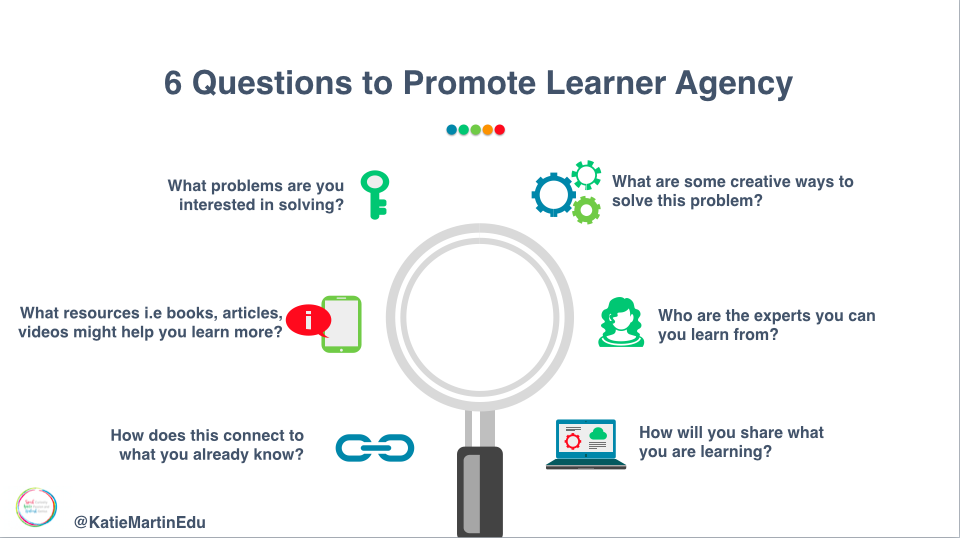I was talking with an educator who is deeply invested in his students and committed to promoting learner agency. He shared that he was really trying to create student-driven, authentic learning experiences. Yet when he asked his students to describe how they learn in school, most described him, the teacher, as the sole source of information.
So what’s the disconnect you might wonder?
This teacher wants his students to own their learning and engage in authentic learning experiences as so many do. Despite his goals, however, as we dove into the day to day activities he realized although he had created fun and engaging activities all the information still came from him. Students hadn’t had opportunities to connect with experts beyond the teacher. All the books or articles had been assigned by the teacher and all feedback and guidance had been provided by the teacher so of course, the students believe that the teacher has all the answers.
This is not uncommon as often our own experiences and habits are such a powerful force and impact our actions. When we want a different outcome we have to challenge our own process, assumptions, and actions as we work to create new norms and systems. We will continually have to ask ourselves,
Why are we doing it this way?
Is this having the impact I was hoping for?
Is there a better way?
Agency is one of the 10 characteristics of learner-centered experiences that I have written about. I often hear people equate learner agency with “doing whatever they want”. Agency is by definition the power to act, but this doesn’t have to be misconstrued as a free for all. We all operate within constraints but we don’t have to all do things the same way to reach the intended learning targets and goals. Educators have certain expectations they are accountable for teaching and there is a variety of content and skills that we want students to learn. Within the content, there can still opportunities for learners to have choice and opportunities to drive their own learning process with shared goals and expectations.
In order to create opportunities for learners to seek information and learn to learn, here are 6 questions that you could pose to promote learner agency and encourage learners to wonder, explore, and drive their learning (yes, even within your content and standards).
-
What do you know and what do you still need to learn?
-
What resources i.e books, articles, videos might help you learn more?
-
How does this connect to what you already know?
-
What are some creative ways to solve this problem?
-
Who are the experts you can you learn from?
-
How will you share what you are learning?
It is critical that we are asking these questions (and more) and helping learners understand that learning is a lifelong pursuit rather than something we do for a test or for the teacher. When we focus on learners, connect to their interests, needs, and goals, we can create experiences that ignite curiosity, develop passion, and unleash genius.
One of my favorite lines from Google’s video, Rubik’s Cube: A question, waiting to be answered (If you haven’t seen it, take a minute and watch it), “…when the right person finds the right question, it can set them on a journey to change the world.” The images of kids conducting experiments, building robots, playing in the mud and even blowing things up always make me smile at the thought of what is possible when learners are inspired and have the support to explore their ideas, questions, and passions in and out of school.



Fascinating views and some great strategies. Excellent post.